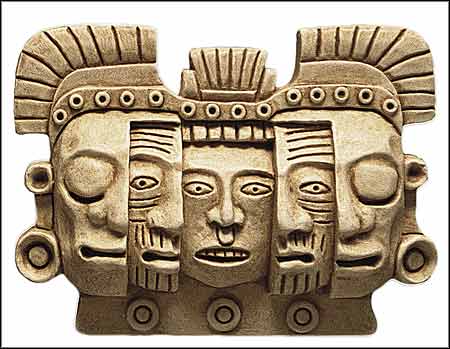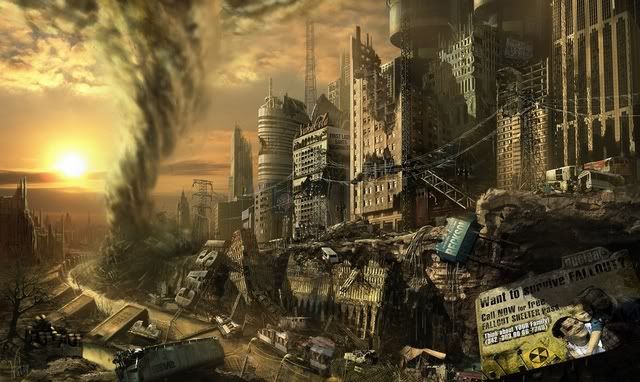"The organizers of the downtown party network also looked on in dismay at the disfigurement of a culture they had once claimed as their own ... they were effectively powerless to intervene, lacking the infinite finances and the critical mass that would have been required to shape these new venues in their own image. Not that a massive amount of money and a captive audience of millions would have made much difference given that their organizing principles ... meant that they would always spread more slowly than their less discerning competitors. Then there was the obscure yet persistent problem of political isolation ... New York's most radical and visionary party people were operating in an ideological vaccuum, thanks to the fact that politicians and union leaders were not exactly open to the field of progressive pleasure ... 'That ... moneymaking attitude contributed to the demise of disco.' "
-Tim Lawrence, Love Saves The Day
"I knew that if it became more commercial this positive statement that I was trying to make would be harder to maintain. I didn't decide to stay in because it was awful outside but because I knew what I wanted to do. Change comes from within."
-David Mancuso, Love Saves The Day
==
So as you might guess I have been reading from this book a lot lately. And I can't help but notice how many parallels can be drawn between what happened then and what is happening now. Some of it is reassuring, but some of it, particularly the above quote, leaves me feeling dismal about the whole process that occurs whenever art join hands with business. Is every major art form doomed to experience a beautiful golden age before it spreads too quickly across a massive population, facilitated by those who are eager to market it, serve "consumers" with what is "next", and in turn make more money than they need? The source of the problem seems to be to be fundamental. When entering into a business venture, we expect and do anything we can to achieve profit, and steady growth. Unfortunately the world does not work like that, so we are left with a mass of distortion. This phenomenon will clearly continue to accelerate, due to the internet and the progression of global communication and connectivity.
There is a clear distinction that must be made between two angles. First, the natural dissemination and progression of a manifestation of culture, one who shares something beautiful with others for its own sake. On the other hand, a speedy expansion and over-saturation of something "next" that is viewed as a means to provide a "product" to a faceless consumer, and in the end, profit. The difference is between making enough, and more than you need. Unfortunately, this is the reality that we live in, and apparently these are two poles in the same spectrum. I suppose the difference comes down to each and every individual. Do you have dollar signs in your eyes? If not, then what is the alternative? Hearts? Gifts? Love? Maybe there isn't a symbol for it...
I realize that dissemination and variation is a natural and ever-present phenomenon. But it's undeniable that it is only us humans who attempt to put a price tag on its results, exploiting them, in turn stretching and reshaping them, in vain expectation of a constantly increasing payoff.
Is my entire reason for writing this, my dismay for the loss of true quality in the midst of marketable or "good enough" quality, an inevitable result of a capitalism? I'm afraid so.
Wednesday, September 29, 2010
Boom
"Note by note, beat by beat, the music becomes more intense and rhythmic until everyone and everything is drawn into a dizzying display of movement. The source of the music, however, remains a mystery: party host David Mancuso is placing records on his AR turntables but his inspiration comes from the dancers, who in turn are inspired by the music. The messages are untraceably complex - no physicist could hope to calculate the unfolding relations of energy, force, and motion - but the communication is unmistakable."
"In Mancuso's terms, a 'third ear' - the aural equivalent of the all-seeing 'third eye' - had started to beat, directing the path of both the music selector and the crowd according to sonic trajectories that had acquired a supernatural momentum. 'There was neither the DJ nor the dancer. Someone would approach me to play a record and I would already have it in my hand or it would already be on the turntable. We would look at each other in recognition. It got very psychic because we knew we were following a sonic trail.' The path manifested itself with a bewildering kinetic energy. 'When a plane takes off there's a moment when the pilot decides that the speed is right, he pulls back and - boom! - you leave the ground. The party was like that. There was a point at which it just went up. It didn't happen right away. It took time. But it happened.' The experience was enlightening. 'Om is the source of all sound ... and I felt as though we had returned h-om-e. It was very childlike, very peaceful, very liberating ... Music helped us reach that place. Music was the key to get back h-om-e.' "
-David Mancuso from Love Saves The Day by Tim Lawrence
"In Mancuso's terms, a 'third ear' - the aural equivalent of the all-seeing 'third eye' - had started to beat, directing the path of both the music selector and the crowd according to sonic trajectories that had acquired a supernatural momentum. 'There was neither the DJ nor the dancer. Someone would approach me to play a record and I would already have it in my hand or it would already be on the turntable. We would look at each other in recognition. It got very psychic because we knew we were following a sonic trail.' The path manifested itself with a bewildering kinetic energy. 'When a plane takes off there's a moment when the pilot decides that the speed is right, he pulls back and - boom! - you leave the ground. The party was like that. There was a point at which it just went up. It didn't happen right away. It took time. But it happened.' The experience was enlightening. 'Om is the source of all sound ... and I felt as though we had returned h-om-e. It was very childlike, very peaceful, very liberating ... Music helped us reach that place. Music was the key to get back h-om-e.' "
-David Mancuso from Love Saves The Day by Tim Lawrence
Tags:
david mancuso,
love saves the day,
music,
quotes,
the loft,
tim lawrence
Somazonked
"[Discos] provided an environment in which alternative sexual and bodily identities could be explored. [The masses] were trance-sexuals who, having submerged themselves in the destabilizing sound-light-space environment of the nightclub, tripped out for hours at a time, slipping into a state of semi-forgetting that did not simply represent an act of political abandonment but also provided a potential platform for experimentation ... Women and men choosing the primeval tremors, vibrations, and pulsations of the collective dance above getting it on? Makes a change ... A denaturalized sexual environment? Perfect. Throw a "cloak of nonthreatening anonymity" over someone and shock, horror, look what happens. S/he starts to behave differently."
-Tim Lawrence, Love Saves The Day
-Tim Lawrence, Love Saves The Day
Tags:
love saves the day,
music,
quotes,
tim lawrence
Tuesday, September 21, 2010
Black Noise
"For music is always already there, even without humans. Music slumbers in all matter; any sound, even silence, is already music. The mission, then, must be to render audible what is unheard and unheard of: black noise, a frequency that is inaudible to man. Black noise often presages natural disasters, earthquakes or floods; only some animals perceive this 'calm before the storm.' Black noise is something archaic and earthy."
-Aram Lintzel
-Aram Lintzel
Tags:
aram lintzel,
music,
quotes
Many Faces

"All the world's a stage,
And all the men and women merely players:
They have their exits and their entrances;
And one man in his time plays many parts."
-Shakespeare, As You Like It
Tags:
quotes,
shakespeare
Recycled

We wanted to blast the world free of history.... picture yourself planting radishes and seed potatoes on the fifteenth green of a forgotten golf course. You'll hunt elk through the damp canyon forests around the ruins of Rockefeller Center, and dig clams next to the skeleton of the Space Needle leaning at a forty-five degree angle. We'll paint the skyscrapers with huge totem faces and goblin tikis, and every evening what's left of mankind will retreat to empty zoos and lock itself in cages as protection against the bears and big cats and wolves that pace and watch us from outside the cage bars at night.
"Imagine," Tyler said, "stalking elk past department store windows and stinking racks of beautiful rotting dresses and tuxedos on hangers; you'll wear leather clothes that will last you the rest of your life, and you'll climb the wrist-thick kudzu vines that wrap the Sears Tower. Jack and the beanstalk, you'll climb up through the dripping forest canopy and the air will be so clean you'll see tiny figures pounding corn and laying strips of venison to dry in the empty car pool lane of an abandoned superhighway stretching eight-lanes-wide and August-hot for a thousand miles."
~Chuck Palahniuk, Fight Club, Chapter 16
Tags:
chaos theory,
fight club,
quotes
Subscribe to:
Posts (Atom)



